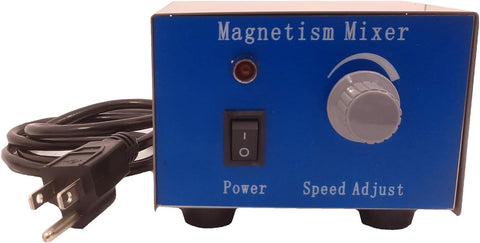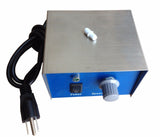Take Your Home Brewery to the Next Level with a Stir Plate
A stir plate is a powerful yet simple tool that can dramatically improve your home brewing results—and it's fun to use. One of the most common mistakes home brewers make is underpitching yeast. A stir plate enables you to cultivate a robust yeast starter with a significantly higher cell count, resulting in faster fermentations, reduced risk of infection, and cleaner, more flavorful beer. And the best part? It takes less time than making a traditional yeast starter.
Most home brewers rely on liquid yeast from smack packs or pitchable tubes. While convenient, these packs often contain far fewer viable yeast cells than needed for optimal fermentation, sometimes as little as one-twentieth the recommended amount. As a result, underpitching is rampant in home brewing.
Proper pitching rates are key to great beer. A good rule of thumb is to pitch 1 billion cells per liter per degree Plato. For a typical 5-gallon batch of average-strength ale, that means around 200 billion yeast cells should be pitched into your cooled wort. High-gravity beers and lagers demand even higher cell counts.
Using a stir plate to propagate your yeast ensures you're hitting those target cell counts with ease, improving the quality and consistency of your brew.
Why You Need a Yeast Starter
-
Liquid yeast loses strength over time and with poor storage
-
A starter lets you check if older yeast is still active
-
Underpitching can cause:
-
Slow or stuck fermentation
-
Off-flavors (fusel alcohols, esters, sulfur, diacetyl)
-
Higher final gravity
-
Greater risk of infection
-
-
Higher gravity beers need more yeast; starters help build cell count
Benefits of Using a Starter
-
✅ You pitch healthy, active yeast
-
✅ Fermentation starts faster (no 2–3 day lag)
-
✅ Less risk of infection
-
✅ Cleaner, better-tasting beer
-
✅ Faster finish:
-
Ales: up to 3 days sooner
-
Lagers: up to 1 week sooner
-
Lagers finish up to one week sooner, ales finish up to three days sooner




